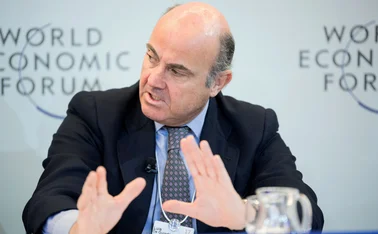
Mexican governor proposes systematic approach for future crises

Agustín Carstens, the governor of the Bank of Mexico, today proposed a ‘checklist' of actions for governments to follow as they attempt to resolve a crisis.
Carstens, speaking at the Monetary Authority of Singapore, identified a string of stylised facts that he believes are inherent in every crisis, and can be addressed by one systematic approach.
In the wake of a crisis, a government's immediate goal should be to stabilise expectations, he said. Positive expectations lead to an improvement in economic fundamentals, which in turn boost expectations, in what Carstens described as a ‘virtuous circle'.
To achieve this, he said, market participants must believe that policy-makers are capable of reversing the situation. Simply demonstrating a serious effort is insufficient. This requires a quick, decisive and well-informed policy response, he said.
Crucially, governments must remain flexible throughout. Typical macroeconomic models break down in a crisis, leaving authorities "navigating without instruments in a storm", Carstens said, and they need to be agile in their response.
Market participants must believe that policymakers are capable of reversing the situation - simply demonstrating a serious effort is insufficient
In addition, a good communication policy is necessary to ensure the flexibility is not interpreted by inaction or a lack of commitment.
As a country's adjustment programme progresses there is a danger of fatigue and complacency setting in, according to Carstens, which threaten to undermine the initial hard-fought progress.
"There will be numerous voices that will call for a declaration of victory and the abandonment of the reform process ahead of time," he warned.
Adjustments should be seen through, he emphasised, but added that it is necessary for governments to mitigate the social consequences, including measures to support the health and education of the unemployed.
Finally, Carstens said the adjustment programmes will fail unless they are followed by economic growth. This necessitates structural reform targeted at improving productivity and competitiveness, he argued.
The governor encouraged the international community to build on his framework, and also to develop better early-warning systems to help preclude the next crisis.
"Financial crises tend to mimic strokes triggered by high blood pressure," he said. "I fear that we are exposed to too many "silent killers" in modern financial systems."
Carstens expressed his fear that the next threat could stem from the "massive capital flows" entering emerging market economies, and the subsequent creation of bubbles.
Only users who have a paid subscription or are part of a corporate subscription are able to print or copy content.
To access these options, along with all other subscription benefits, please contact info@centralbanking.com or view our subscription options here: http://subscriptions.centralbanking.com/subscribe
You are currently unable to print this content. Please contact info@centralbanking.com to find out more.
You are currently unable to copy this content. Please contact info@centralbanking.com to find out more.
Copyright Infopro Digital Limited. All rights reserved.
As outlined in our terms and conditions, https://www.infopro-digital.com/terms-and-conditions/subscriptions/ (point 2.4), printing is limited to a single copy.
If you would like to purchase additional rights please email info@centralbanking.com
Copyright Infopro Digital Limited. All rights reserved.
You may share this content using our article tools. As outlined in our terms and conditions, https://www.infopro-digital.com/terms-and-conditions/subscriptions/ (clause 2.4), an Authorised User may only make one copy of the materials for their own personal use. You must also comply with the restrictions in clause 2.5.
If you would like to purchase additional rights please email info@centralbanking.com







